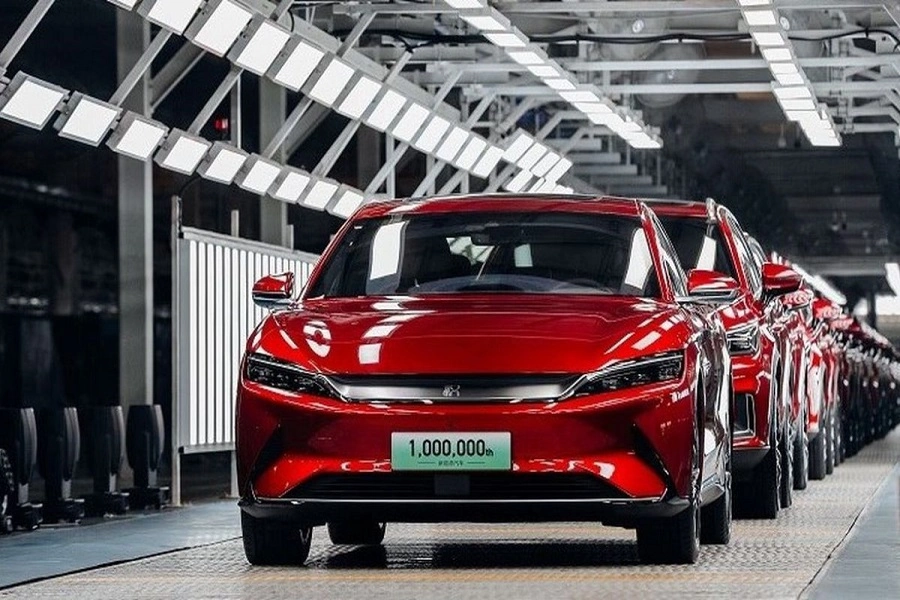The National Association of Automobile Manufacturers (ANFAVEA from Brazil) expects the Federal Government to announce the end of tax exemptions for the import of electric and hybrid vehicles by the end of September.
This measure would directly impact the importation of light vehicles such as cars and vans, as well as electric and hybrid trucks and buses. The tax rate will return to 35% of the price of electric vehicles, which was applied until 2015.
It will apply to units from countries that do not have a trade agreement with Brazil, such as Mercosur and Mexico, and will be implemented gradually over the next three years.
The proposal to be discussed in the Committee on Economic Affairs was previously debated within the ANFAVEA committee, which has 26 member associations.
Márcio Leite, the president of the ANFAVEA, expressed support for the reintroduction of the import tax.
The reason behind the removal of the exemption is the competitiveness of Chinese brands that are gaining ground in Brazil.
The ANFAVEA representative argues: “There is an invasion of Asian products, mainly from China, in Latin America”.
In response to the measure, Arthur Carneiro Neto, an analyst and automotive market consultant at Grupo Primavia, a company that sells Fiat, Nissan, Jeep, Renault, RAM, Dodge, Chrysler, Peugeot, Citroen, and Ventura Marine vehicles, told Portal Movilidad Latin America: “Looking at it objectively, I think it’s a major setback.”
In the same vein, Wanir Souza, a business consulting and customer service expert in the automotive industry, explained to Portal Movilidad Latin America:
“Sales this year have already exceeded those of all of 2022, but if the 35% import tax is reintroduced, the prices of electrified vehicles, which are already high, will become impractical and much higher than the prices of similar combustion engine vehicles, making them less competitive.”
He added: “It’s a market with great potential for growth, but we have barriers to overcome, the first being the issue of pricing, which, if increased due to the new import tax, will be further exacerbated”.
Currently, the importation of Chinese brands accounts for the increase in the share of vehicles produced in these countries in the Latin American market and the decline in Brazilian exports.
Furthermore, in April, the Brazilian Association of Importers and Manufacturers of Automobiles (Abeifa) anticipated the second half of the year and proposed a low tax for electric cars with a gradual increase to the government.
In other words, the expectation of an import tax for this segment would motivate companies to produce electric vehicles in Brazil.
It’s worth noting that there are currently no local companies manufacturing electric vehicles.
Regarding the electric bus segment, Miguel Angelo Pricinote, the Undersecretary of Policies for Cities and Transport of the Government of Goiás, stated to Portal Movilidad Latin America:
“Taxing imports can protect the domestic automotive industry from foreign competition, but it can also inhibit innovation and technological advancement since local companies have fewer incentives to improve their products”.
He added: “The imposition of tariffs or restrictions may provide temporary protection, but in the long term, continued dependence on these trade barriers can create a less competitive industry that is less prepared to face global competition when the barriers are lifted.”
Other voices also weighed in, such as BYD, a key player in electric vehicle sales in August in the automotive market.
The Chinese automaker criticized the position of the entity representing local manufacturers, ANFAVEA.
This information comes from Reuters, which interviewed Alexandre Baldy, special advisor and spokesperson for BYD in Brazil, where the executive was very clear in condemning the statement on a topic that he claims has not yet been decided.
Chinese brands achieve record sales
According to the latest data from the Brazilian Electric Vehicle Association (ABVE), the Brazilian market for electrified vehicles maintained a strong pace of sales throughout the first half of the year.
In this case, the record is rapidly approaching the historic mark of 10,000 units in the month of August alone.
The recent growth has been significantly driven by Chinese brands such as BYD, GWM, and CAOA Chery, which have been aggressive in launching new models and have announced investments in Brazil.
CAOA Chery sold 1,711 units, BYD 1,454, and GWM 1,451 in the electrified vehicle segments.
In terms of the share of plug-in vehicles (BEV and PHEV) in the total sales of electrified vehicles, it reached 52% in August (4,874 vehicles), slightly higher than the sum of HEV and flex-fuel HEV at 48% (4,477 vehicles).
Among the best-selling electrified models in August from prominent Chinese companies were the BYD Song Plus GS Dm (761) and the Dolphin G (371).
CAOA Chery had the Tiggo 8 (691), the Tiggo 7 PRO HA (361), and the Tiggo 5X PRO HA (294) among its top sellers.
GWM’s lineup included the Haval H6 (520), the Haval H6 GT (519), and the Haval H6 Prem (412).
In the first half of 2023, Brazil registered 49,052 electrified light vehicles, almost the same number as in the entire previous year.
The market share of electrified vehicles also grew considerably, reaching a historic high of 4.75% of total registrations of light vehicles in the national market in August.
Read more: Brazil evaluates investments in electric mobility with China and breaks sales record






